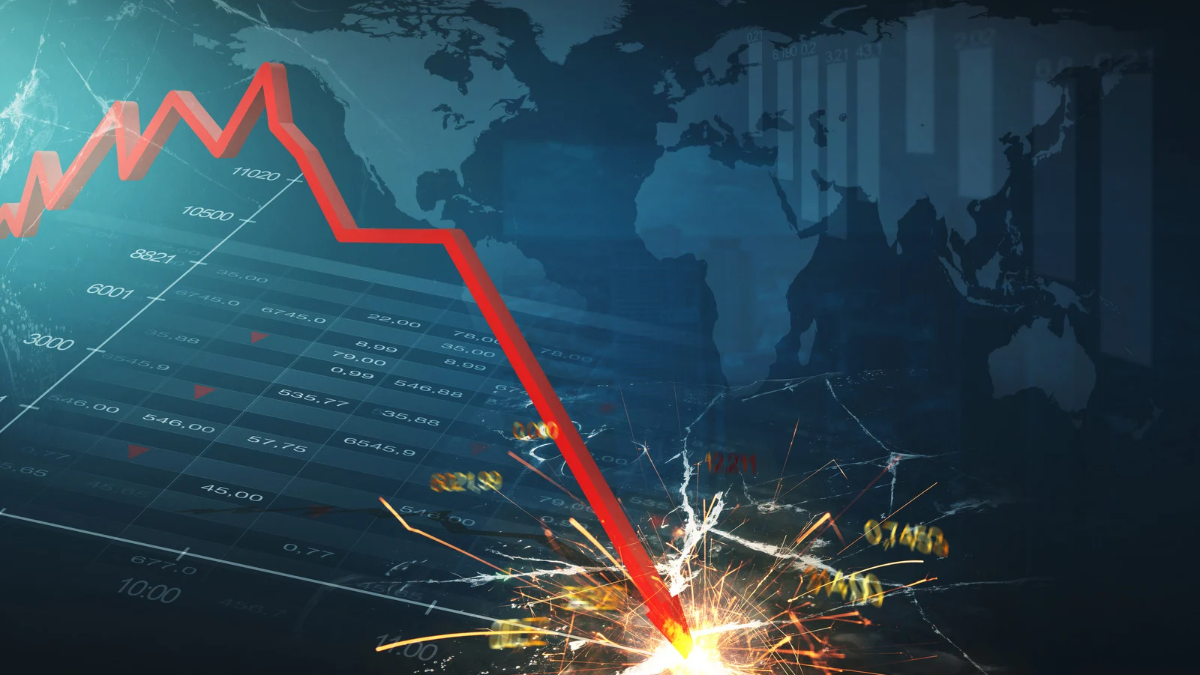After a shaky 2022, what awaits crypto in 2023?
DISCLAIMER: This post was last modified on 09 JANUARY 2023. Some information in this article may not be updated.

2022 was a hectic year for the cryptocurrency world, no thanks to technical and macro headwinds brought by geopolitical tensions (Ukraine-Russia war), the wake of the Covid-19 pandemic, recession and other economic challenges. Add to those, the tightening regulations surrounding the cryptocurrency world.
But perhaps the most memorable crypto moments for 2022 were the FTX bankruptcy and the Terra Luna crash. In May of 2022, the world saw the epic crash of the major stablecoin terraUSD (UST), which was pegged to the US dollar before it eventually collapsed to a few cents. The UST crash resulted in a $300 billion loss across the crypto space.
Towards the end of the year, the crypto world, faced, yet again, a high-profile collapse, with major crypto exchange FTX filing for bankruptcy when FTT withdrawals spiked following reports of FTX founder Sam Bankman-Fried’s involvement in fraudulent activities. The bankruptcy caused a ripple effect in the crypto space and left venture capitalists, actors and other investors exposed.
It was an eventful (and dismal) year for the digital asset landscape, which ushered in a crypto winter. But for 2023, what awaits the crypto world?
Still snowing?
Industry actors call this season ‘crypto winter’, an event that investors hope would blow over sooner than later. In traditional investments, crypto winter can be similar to a bear market. The difference is that where a conventional bear market requires at least a 20% market decline, crypto does not have cemented specific metrics, but historically, crypto winters have shown an upwards of 80% drop in value and significant volatility with up to 98% cut in value in some cases.
The first crypto winter happened in 2018 through December 2020 when Bitcoin lost half its market cap and other crypto declined sharply. In November 2021, Bitcoin recorded its all-time high of $68,000 in November 2021 before declining steadily and then plunging the following months, sinking 75% to under $17k on the last day of 2022.
So how long will this winter last? It’s difficult to determine, says Bolder Group’s Global Head of Funds Neco Dusseldorp. “But the market is not “crazy”. Depending on your beliefs you can say that the market has priced in all current information. As long as there is no surprise in inflation data and no unexpected rate hikes the worst should be over.”
There is also no need for traditional investors to worry as conventional finance will not be exposed despite the turmoil in the crypto world.
Regulating crypto
Some investors believe it’s a wild west in the crypto world, believing there are not enough regulations to protect investors and guarantee confidence in the asset class. The ecosystem is volatile as it is, and with no regulations to govern it, actors are exposed to high risks.
The lack of authorities in the space may also be why crypto valuations may be complicated. Fund administrators use technology to fully understand a day’s trade and the crypto’s values. In addition, a lack of regulations can also be a reason it is difficult to identify events that cause fluctuations and collapse.
After what happened in 2022 and the value of money lost in crypto last year, it makes sense for authorities to look more closely into the space this 2023 and beyond. Currently, a number of jurisdictions are already making efforts into governing the space.
Stricter regulations will also help secure market participants, their data and investments. The recent years have also seen an evolution in scams and illicit activities in the crypto space. In 2019, the market lost more than $2 billion from PlusToken scams. According to the 2022 Chainalysis Cryptocurrecy Crime Report, as of early last year, crypto criminals held about $10 billion worth of the asset.
In the United States, President Joe Biden signed into law the Bipartisan Infrastructure Deal. Under the law, crypto brokers will be required to submit an IRS Form (1099-Bs), disclosing their clients’ information for tax purposes. Another provision requires market participants in the US who will receive at least $10,000 worth of crypto to file a report to the IRS about said transaction. Crypto actors are concerned about how this will affect their privacy. These provisions will not take into effect until 2024, but amendments are expected this year.
As mentioned above, the much-debated MiCA regulation is set to enter into force this year. The regulation governs digital assets in member states and aims to protect investors. The regulation requires issuers of e-money tokens, asset-referenced tokens and other crypto-assets to provide ‘white papers’ – a detailed report on the characteristics and risks of the tokens and their behaviours – to actors before issuing the asset. In addition, MiCA introduces a set of market abuse rules patterned after regulations governing conventional investments and fund classes. Market manipulation, for example, will be considered market abuse and a criminal offence.
This year, Singapore is set to implement tighter rules on cryptocurrency. Last October 2022, the Monetary Authority of Singapore proposed regulatory measures for cryptocurrency covering consumer access, business conduct and technology risks. These steps are part of the Payment Services Act.
Hong Kong is currently establishing a licensing regime for virtual asset service providers. We discussed the important points of the bill in a previous article.
What’s next for crypto
Crypto winter has set in. With this in mind, should asset managers and investors take the risk and bet on crypto this year? “It depends on their vision and strategy. As a long-term investor, selling after absorbing these losses would not make sense. A temporary relief bounce is expected to happen anytime in the future … [this] can be used as exit liquidity,” says Dusseldorp.
Dusseldorp also believes that investor confidence in crypto is low given the current situation. “But this is always the case in cycles,” he adds. According to him, the next move of crypto market participants fully depends on their thesis of the situation and crypto itself.
Some investors have crypto as they believe the debt bubble we have is no longer sustainable. If the crises unfold in a currency or monetary crisis, Bitcoin can be used as a hedge as no central entity can influence the amount issued.
Neco Dusseldorp
Bolder Group Global Head of Funds
Moving forward, blockchain technology – whether defi or central – will play an important role in the digital economy, as their digital assets are potentially more efficient and transparent than their traditional counterparts.
“[T]he technology allows tokenization of assets, increased liquidity, new liquidity for previously illiquid assets and new possibilities for businesses,” Dusseldorp states, citing Starbucks Odyssey as a good example of NFT integration and new business models relevant to cryptocurrency.
Bolder crypto fund solutions this 2023
As a global fund administrator extending its services to the digital asset space, Bolder Group keeps its stakeholders informed, involved and in control. 2023 will be a make-or-break year for the currently chilly crypto space, with stricter regulations awaiting every corner of the ecosystem.
To know how we can help you survive the cold with our digital fund services, reach out to your Bolder representative or navigate our services here.
Bolder Group does not provide financial, tax or legal advice and the information contained herein is meant for general information purposes only. We strongly recommend that before acting on any of the information contained herein, readers should consult with their professional advisers. The Bolder Group accepts no liability for any errors or omissions in the information, or the consequences resulting from any action taken by a reader based on the information provided herein.
Bolder Group refers to the global network of independent subsidiaries of Bolder Group Holding BV. Bolder Group Holding BV provides no client services. Such services are provided solely by the independent companies within the Bolder Group which are each legally distinct and separate entities and have no authority (actual, apparent, implied or otherwise) to obligate or bind Bolder Group Holding BV in any manner whatsoever. The operations of the Bolder Group are conducted independently and have no affiliation with third party financial, tax or legal advisory firms or corporations.
